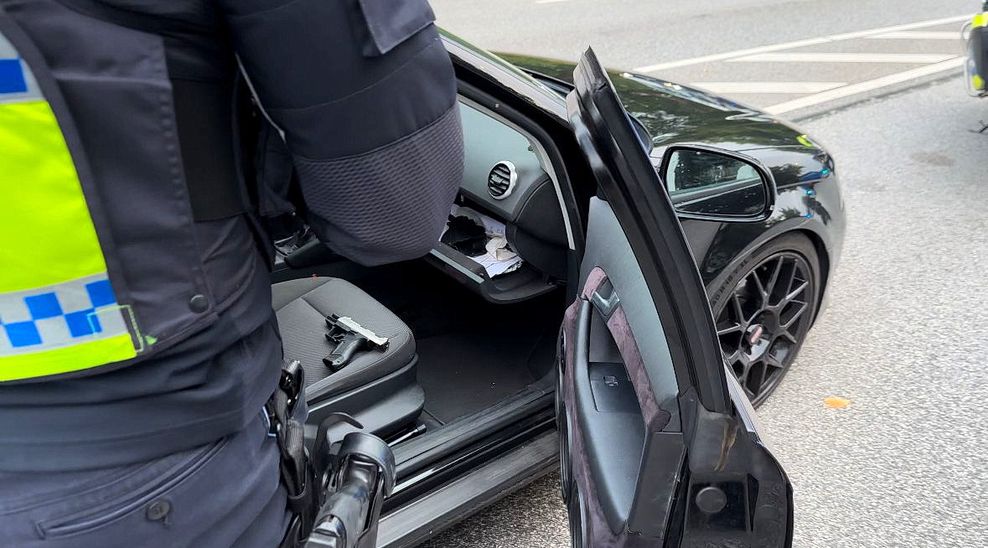Vice President Kamala Harris’ first two weeks as a presidential candidate should give her campaign – and Democrats – quite a few reasons to be optimistic.
Since replacing President Biden as the Democratic nominee, polls have shown a surge in support for Harris, particularly in the all-important swing states. Whether it lasts through November, however, remains to be seen.
Indeed, Harris has erased Trump’s lead in battleground states, with the vice president now slightly leading across the seven swing states that will decide the election (48% to 47%).
Looking at individual states, Harris is ahead in Michigan (53% to 42%), Arizona and Wisconsin (49% to 47%), and Nevada (47% to 45%), according to a Bloomberg/Morning Consult poll.
To be sure, while Michigan appears to be an outlier, the margin is extremely close, with the two candidates trading leads depending on the poll.
That being said, Harris is clearly seeing growing enthusiasm for her candidacy, including reversing Trump’s lead in Arizona and more than doubling Biden’s lead over Trump in Michigan from previous Bloomberg/Morning Consult polling.
Looking at all public polling emphasizes Harris’ surge even more clearly. Immediately following Biden’s withdrawal, Trump’s lead over Harris remained between 1-3 points according to polls aggregated by RealClearPolitics.
However, as enthusiasm behind Harris has grown, it has begun showing up in the data. Harris now has a small advantage in three of the five most recent national polls, cutting Trump’s average lead in national polling from 2% to 1% – a statistical tie.
Put another way, despite Harris’ honeymoon surge, this is still anyone’s race. She still has to overcome voter concerns over the Biden administration’s record on the economy, immigration, foreign policy, and her own specific issues.
Specifically, her role as a prosecutor in California could be a challenge on two fronts. Republicans will – and have – try to pin the state’s crime epidemic on her ‘soft-on-crime’ policies and support for defunding the police.
Progressives on the other hand, may take issue with some of her more controversial decisions such as opposition to police reform, and her record defending convictions with evidence showing innocence and prosecutorial misconduct.
Moreover, Harris is yet to articulate an agenda, something she was unable to do in 2019 and which could turn off more moderate voters if she outlines an administration that would be too far to the political left.
Yet, it is notable where Harris’ support is coming from. Majorities or pluralities of young voters (52%), women (49%), Black (75%), and Hispanic voters (56%) are backing the vice president per the aforementioned Bloomberg/Morning Consult poll.
These are critical Democratic blocs, and Harris’ outperformance vis-à-vis Biden with each underscores that she has the broad acceptance of the party that Biden simply did not by the end of his campaign.
In that same vein, Harris’ energy and relative youth compared to Biden has elevated her into a symbol of a new generation of Democratic voters.
Not only is this evident in her campaign’s strategic use of celebrities, but particularly in the massive fundraising and volunteer signups she has already attracted.
Within just the first week of her campaign, Harris raised $200 million, with two-thirds coming from first-time donors, and more than 170,000 volunteers signed up to help the campaign’s GOTV efforts, phone banking, and canvassing.
Make no mistake, however, it is an open question whether or not Harris can sustain this momentum after the honeymoon ends.
The speed in which Harris was nominated has upended what is traditionally a yearslong campaign, and has given Harris less opportunity to make her case to voters. She has had little time to define her own candidacy as anything other than a replacement for a candidate much of the Democratic Party had soured on.
Yet, there is one clear benefit: Harris’ breakneck ascent has left Donald Trump and Republicans struggling to come up with ways to attack her, forcing Trump to resort to personal attacks, saving Harris from having to articulate her own agenda.
In fact, even some Republicans are upset at Trump’s personal jabs at the vice president, which have tended to focus on her race.
Senator John Thune, a likely pick for Senate GOP leader, has also implored Trump to stay focused on the issues and leave race out of the campaign.
It should be clear that by leveling personal attacks against Harris instead of hitting her on her record and the issues that will determine the election, Trump is inadvertently helping Harris.
Rather than forcing Harris to defend the Biden administration’s record on the economy and Southern border, her past support for defunding the police, or driving a wedge between Harris and progressives over her history as a prosecutor, Trump is letting Harris off the hook with personal attacks that will do little but alienate voters.
While true that Republicans have attacked Harris for her role as Biden’s handpicked “border czar” and the administration’s record on the economy, that messaging gets overshadowed by Trump’s controversial remarks, which only serve to remind voters about Trump’s divisive rhetoric instead of inflation and the immigration crisis.
Similarly, Trump’s attacks help Harris avoid having to actually develop, articulate, and stand by a policy platform of her own.
With Democrats deeply divided over issues like the war between Israel and Hamas and criminal justice reform, forcing Harris to take positions would be far more advantageous than questioning whether or not she is Black.
Related Articles
The days of endlessly waiting for unhoused individuals to agree to accept services are over
Newsom denounces Trump’s authoritarian tendencies, but displays some himself
JD Vance and childless cat ladies: cue the outrage
J.D. Vance and the bipartisan itch to tax behavior
John Stossel: An interview with Robert F. Kennedy Jr.
Quite simply, Trump’s personal attacks are exacerbating – and prolonging – Harris’ honeymoon period by allowing her to avoid the substantive parts of a presidential campaign.
To that point, all of the attention on race and gender has altered Harris’ strategy. Her aides recently told the New York Times that the campaign now plans to expand the map and compete in “more racially diverse Sun Belt and Southern states” such as Arizona, Georgia, Nevada, and North Carolina, flipping Republicans’ strategy of attacking Democrats’ “Blue Wall.”
Ultimately, until Harris is forced to develop a comprehensive agenda and policy platform, it is impossible to determine how much of her early success is due to a honeymoon – and Democrats catching their breath after the emotionally charged debates over Biden’s candidacy – versus a sustainable strategy.
And yet, it is plain to see that right now, Harris undoubtedly has the momentum necessary to make this a competitive race once again.
Douglas Schoen is a longtime Democratic political consultant.

























